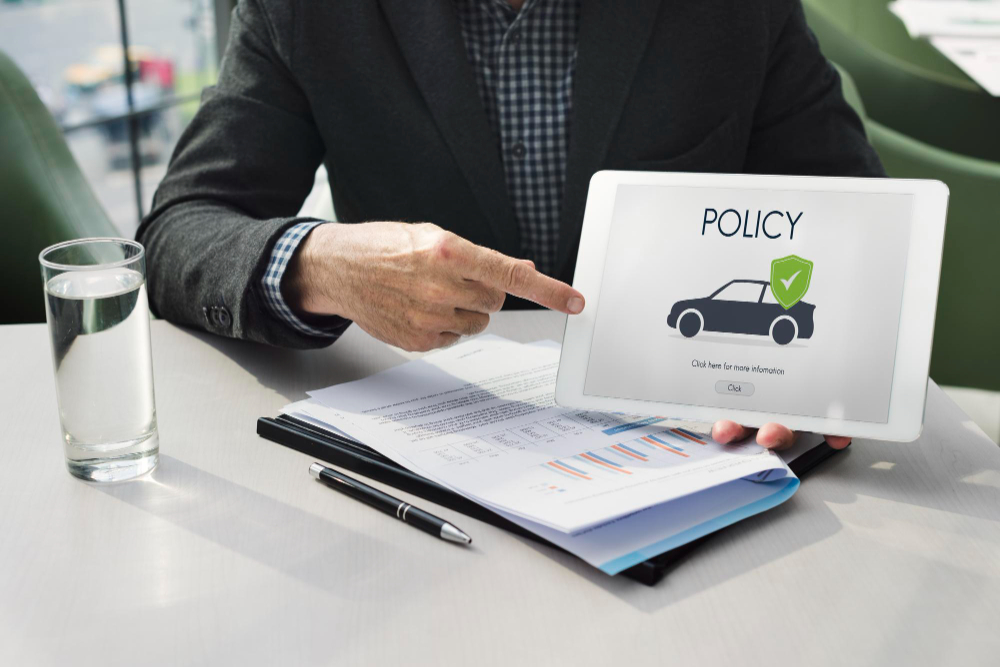Table Of Contents
- What is Auto Insurance?
- Public Liability and Its Importance for Car Owners
- Insurance Law For Car Owners: Types Of Auto Insurance Coverage
- Liability Insurance
- Collision Insurance
- Comprehensive Insurance
- Personal Injury Protection (PIP)
- Uninsured/Underinsured Motorist Insurance
- How to Choose the Right Insurance for You
- Assess Your Needs
- Consider Your Budget
- Understand Local Requirements
- Compare Quotes
- The Legal Side of Auto Insurance
- What Happens if You Don’t Have Insurance?
- Final Thoughts on Auto Insurance and Public Liability
Insurance Law for Car Owners: A Simple Guide to Auto Insurance and Public Liability
Car ownership is not merely weekend cruising or Monday morning traffic — it’s a responsibility. One of the biggest? Ensure your car is adequately insured.
Now let’s be real: car insurance can be confusing. But learning about it isn’t just intelligent — it’s necessary. It guards you, your money, and the folks you’re traveling with.
In this guide, I’ll guide you through the fundamentals of insurance law for car owners, in plain language so you can make wise, confident choices.
Let’s dive into the different types of coverage and why they matter, so next time you’re on the road, you’ll know you’re covered where it counts.
What is Auto Insurance?
Auto insurance is basically a guarantee, one from your insurance company to you. You pay a monthly fee, and they’ve got your back in case life throws you a curve: a fender bender, a break-in, or worse.
Depending on the type of policy you select, car insurance can pay for your vehicle, other property, doctor bills, etc.
Some are obligatory, and others provide you with even greater peace of mind. The proper combination depends on where you reside, how you drive, and how much risk you’re comfortable taking on.
Public Liability and Its Importance for Car Owners
Public liability insurance is one of those things many drivers don’t think about — until they need it. But it’s a big deal.
This type of insurance law for car owners steps in when you’ve accidentally caused damage or injury to someone else.
Think about it: even if you’re a safe, experienced driver, stuff happens. Someone cuts you off, the road is slick, or an unexpected moment turns into a collision.
When that happens, public liability helps cover legal costs, medical bills, or repair fees — things that could otherwise come straight out of your pocket. It’s a financial safety net you hope you never need… but are glad to have when it counts.
Insurance Law For Car Owners: Types Of Auto Insurance Coverage
There’s no one-size-fits-all policy, and understanding your options makes all the difference. Here’s a quick breakdown of what’s out there:
Liability Insurance
This is the minimum required in most places. It covers damage or injuries you cause to someone else.
That includes their vehicle, property, and any medical treatment. If you’re found at fault in an accident, this keeps you from footing the entire bill yourself.
Collision Insurance
If you hit something — another car, a pole, a guardrail — this insurance helps pay for repairs to your vehicle. Regardless of who was at fault, collision coverage steps in to get your car back on the road.
Comprehensive Insurance
Sometimes the damage comes from nature or unexpected events — a tree branch falls, someone steals your car, or you wake up to vandalism. Comprehensive insurance covers all the non-collision stuff that can still hit your wallet hard.
Personal Injury Protection (PIP)
Also known as no-fault coverage, this helps pay for medical expenses if you or your passengers are hurt in a crash.
Some policies even cover lost wages or transportation to medical appointments — it’s support beyond just the ER bill.
Uninsured/Underinsured Motorist Insurance
Not every driver follows the rules. If someone hits you and doesn’t have insurance — or not enough of it — this coverage fills in the gaps. It’s especially useful in areas where uninsured drivers are, unfortunately, pretty common.
How to Choose the Right Insurance for You
While searching for insurance law for car owners, finding the right policy isn’t about picking the cheapest one. It’s about balance — getting the coverage you need without overpaying.
Assess Your Needs
If you’re driving a ten-year-old car, you might not need full coverage. But if your vehicle is newer or still under finance, protecting that investment is wise.
Consider Your Budget
We all want to save money. But a bargain policy that leaves you exposed in an accident isn’t really a bargain. Think about what you can afford — both in premiums and in worst-case out-of-pocket costs.
Understand Local Requirements
Every state or region has its own rules about what kind of coverage is mandatory. Make sure you’re meeting (or exceeding) those requirements, so you’re legally compliant and properly protected.
Compare Quotes
Don’t just stick with the first offer. A bit of comparison shopping can help you find better rates, stronger coverage, or better customer support. It’s worth the time.
The Legal Side of Auto Insurance
Across the U.S., car insurance laws vary — sometimes slightly, sometimes significantly. But one thing’s universal: you need liability insurance.
The minimum coverage levels vary by state, and in some places, extras like PIP or uninsured motorist coverage are also mandatory.
Driving without insurance? That’s not just risky — it’s a serious legal offense. You could face fines, license suspension, or even jail time.
And if you’re in an accident without coverage, you might be on the hook for all damages. That kind of financial blow can set you back for years.
What Happens if You Don’t Have Insurance?
If you get pulled over or wrecked and are not insured, it becomes ugly — in a hurry. Depending on where you reside, you may lose your license, be required to pay a substantial fine, or have your vehicle towed.
Worse, if you are in an accident, you’re liable for all the damage — hospital costs, attorney fees, repairs on your vehicle, the whole nine yards.
It’s not worth risking. A single miscalculation can set you back more than you can even imagine.
Final Thoughts on Auto Insurance and Public Liability
Insurance Law for car owners isn’t merely a matter of law — it’s protection. It is insuring you, your wallet, and those around you.
Whether it’s plain liability or the full package, such as collision and public liability, having the correct policy in place is the solution.
So take the time to understand your options. Ask questions. Compare providers. Because at the end of the day, it’s not just about checking a box — it’s about driving with peace of mind, knowing that if life throws something unexpected your way, you’re ready.
Read Also:















